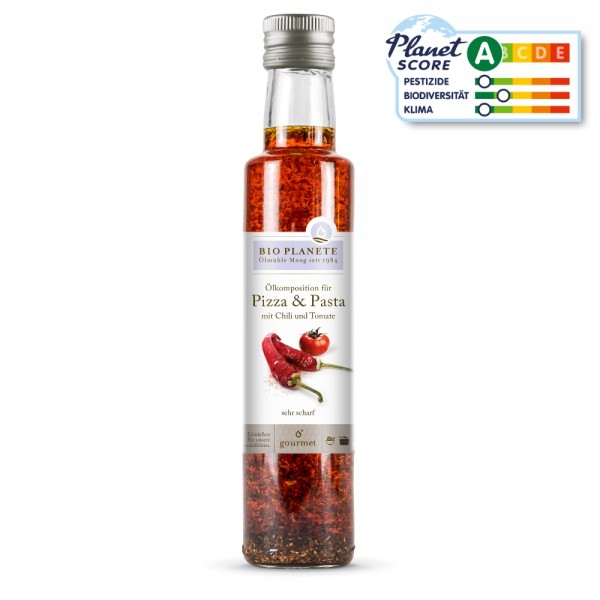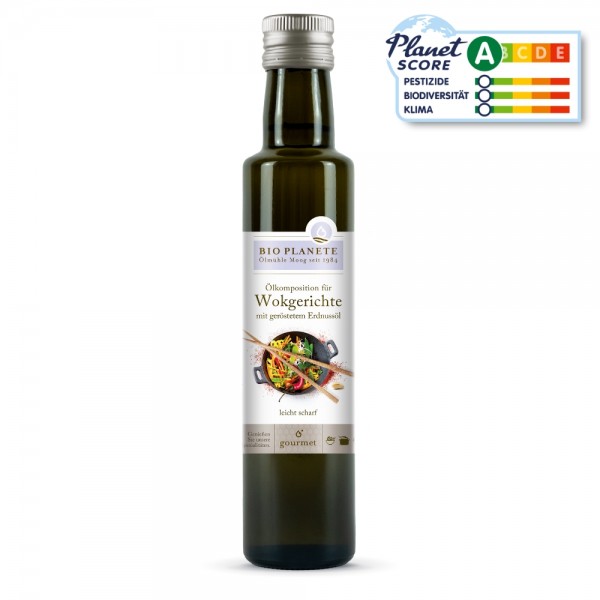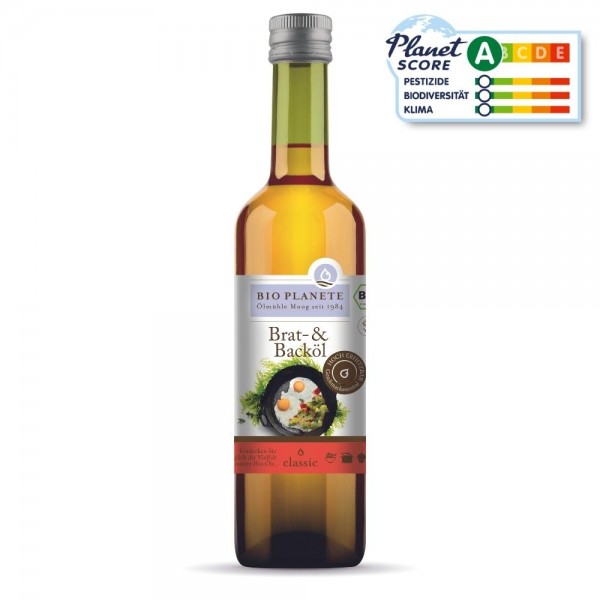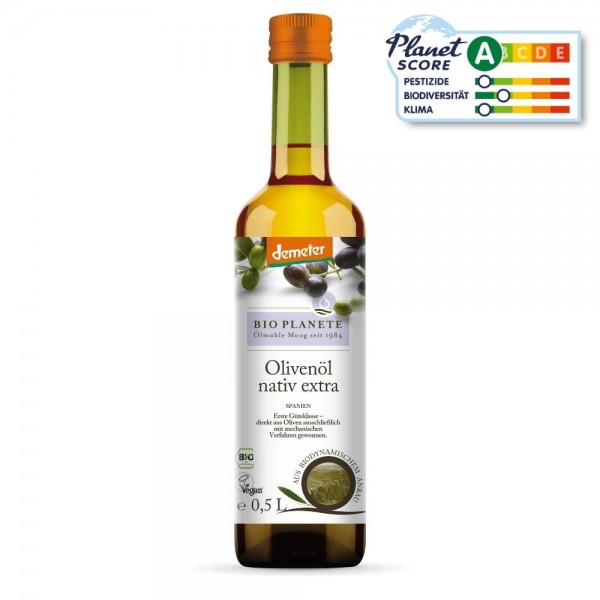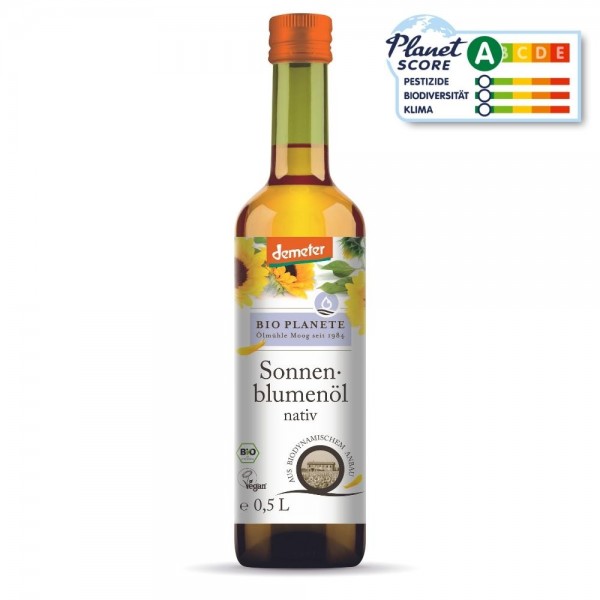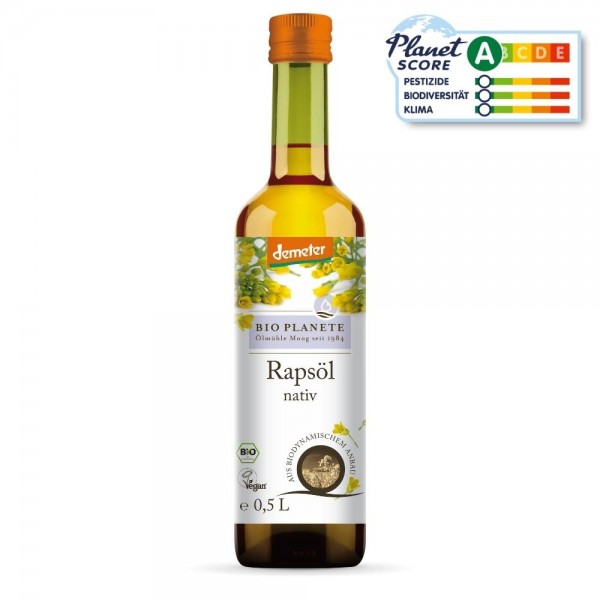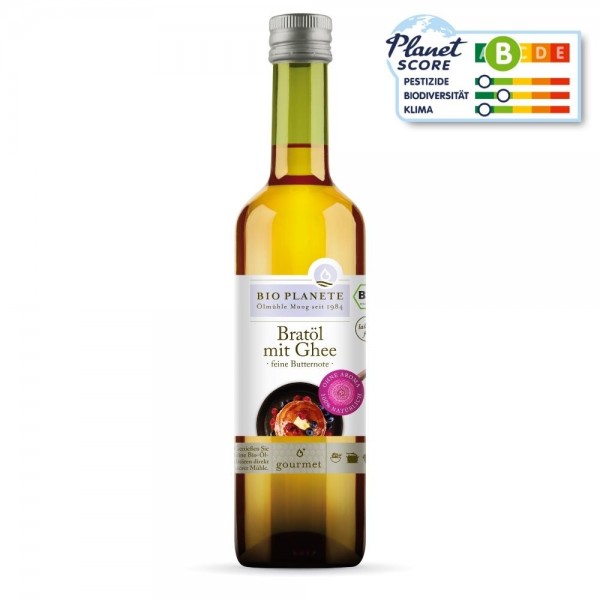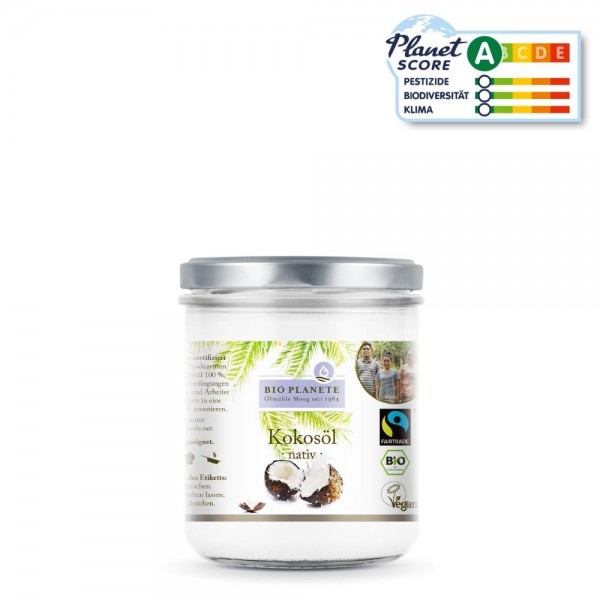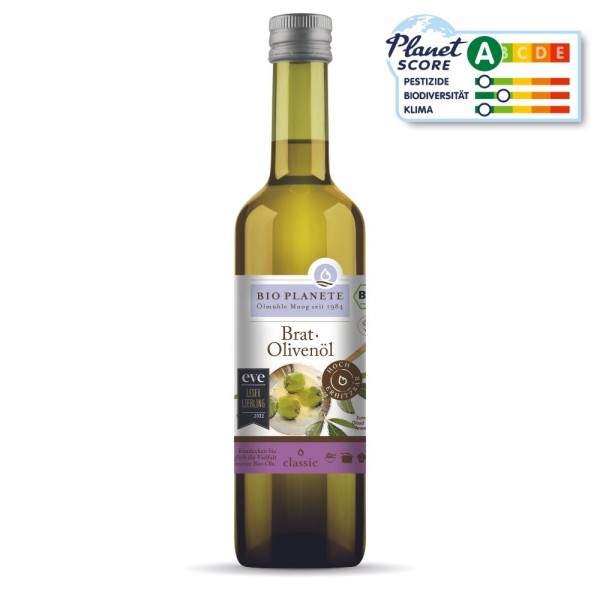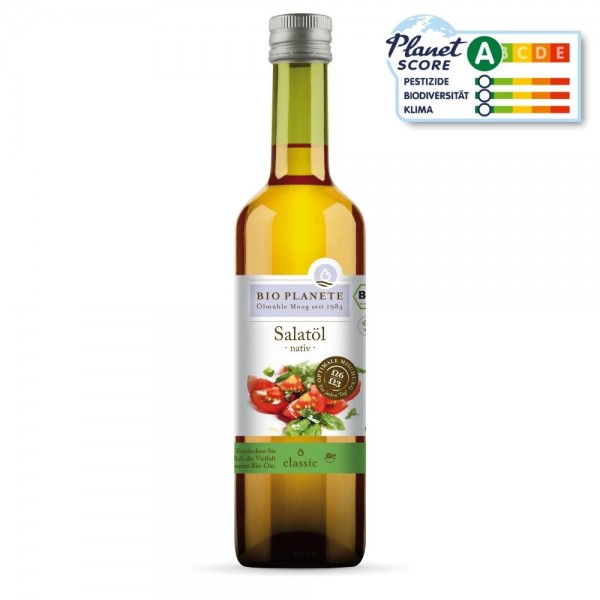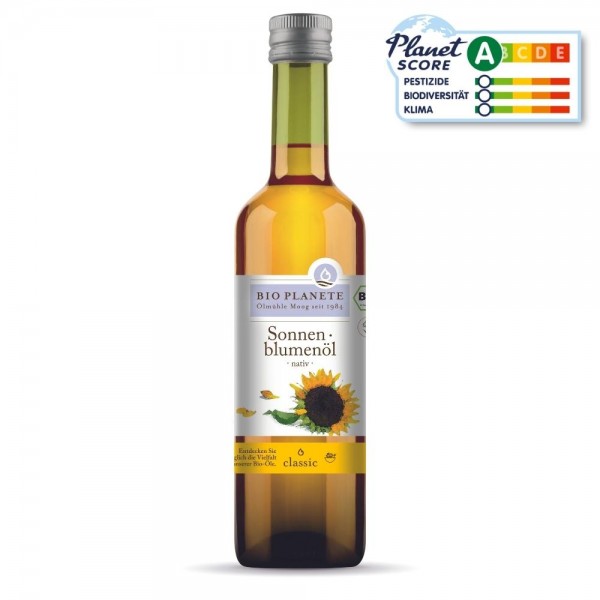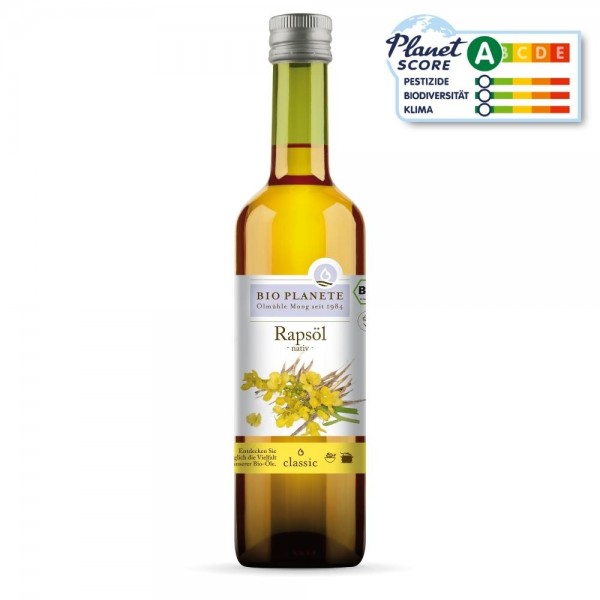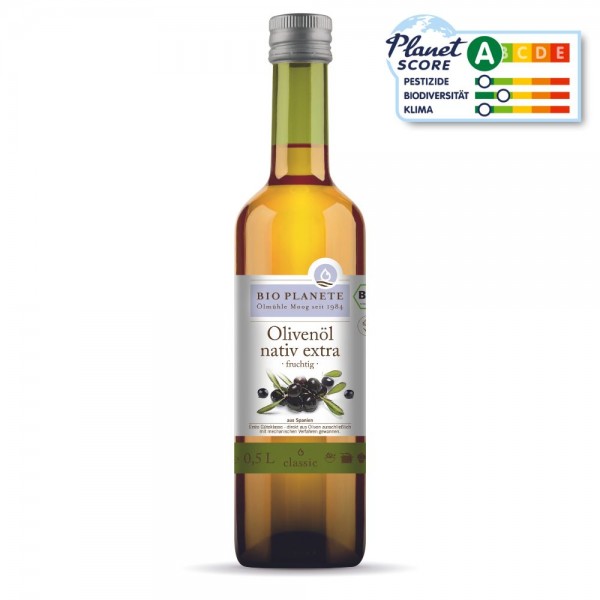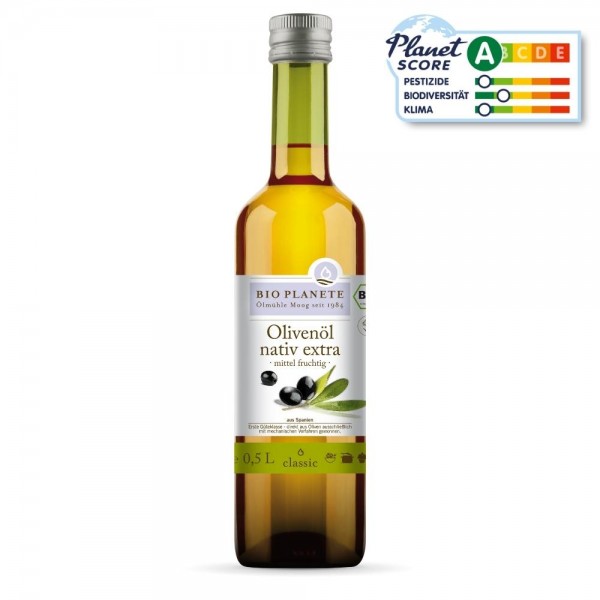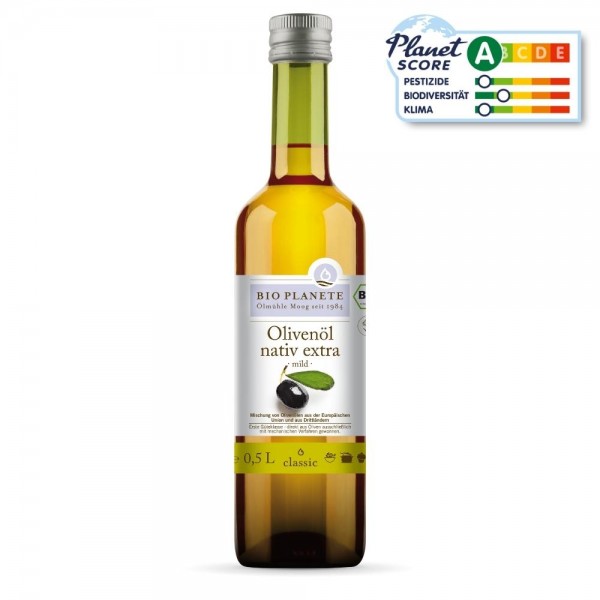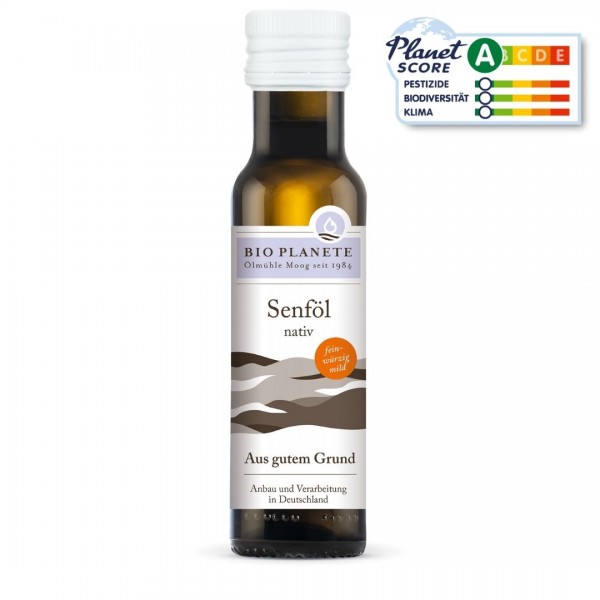Food changes the world
What and how we eat is an important decision. After all, the production and consumption of food items accounts for up to 30 percent of all environmental impacts in Europe. Certifications and labelling can help in our day-to-day selection of food items. The EU Commission shares this belief.
As part of the ‘Farm to Fork’ strategy, it wants to create a standardised sustainable food labelling framework. From 2024, every consumer ought to be able to discern immediately the impact that manufacturing of a food item has on the environment.
BIO PLANÈTE advocates Planet Score
As the first organic oil mill in Europe, we promote standardised sustainable labelling for the entire EU, which acknowledges the services provided by organic agriculture and organic producers!
For us, Planet Score is currently the best and most honest method. That is why we are advocating the continued development of Planet Score. We are the first German company to have our products rated using Planet Score.
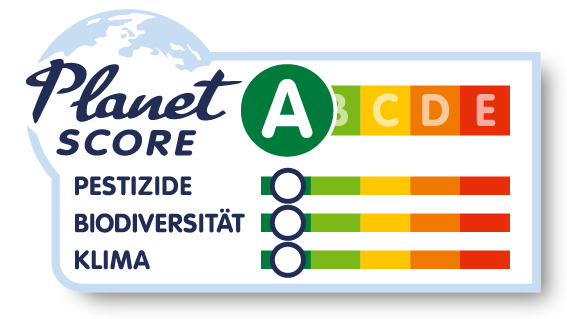
May we present... Planet Score
Planet Score was initiated in 2021 by a French action group comprising 16 non-governmental organisations (NGOs) and players in the organic sector. It was developed by the ITAB. Since then, 120 producers and brands, predominantly in France, have been tested.
Planet Score provides information about the environmental impact of food items. The label establishes an overall score on a scale ranging from A to E and also provides information about whether the manufacture of a food item negatively impacts people’s health, biodiversity and the environment. The label also has an animal welfare rating for animal foodstuffs.
The label allows consumers to quickly compare products of the same category with regard to their environmental impact.
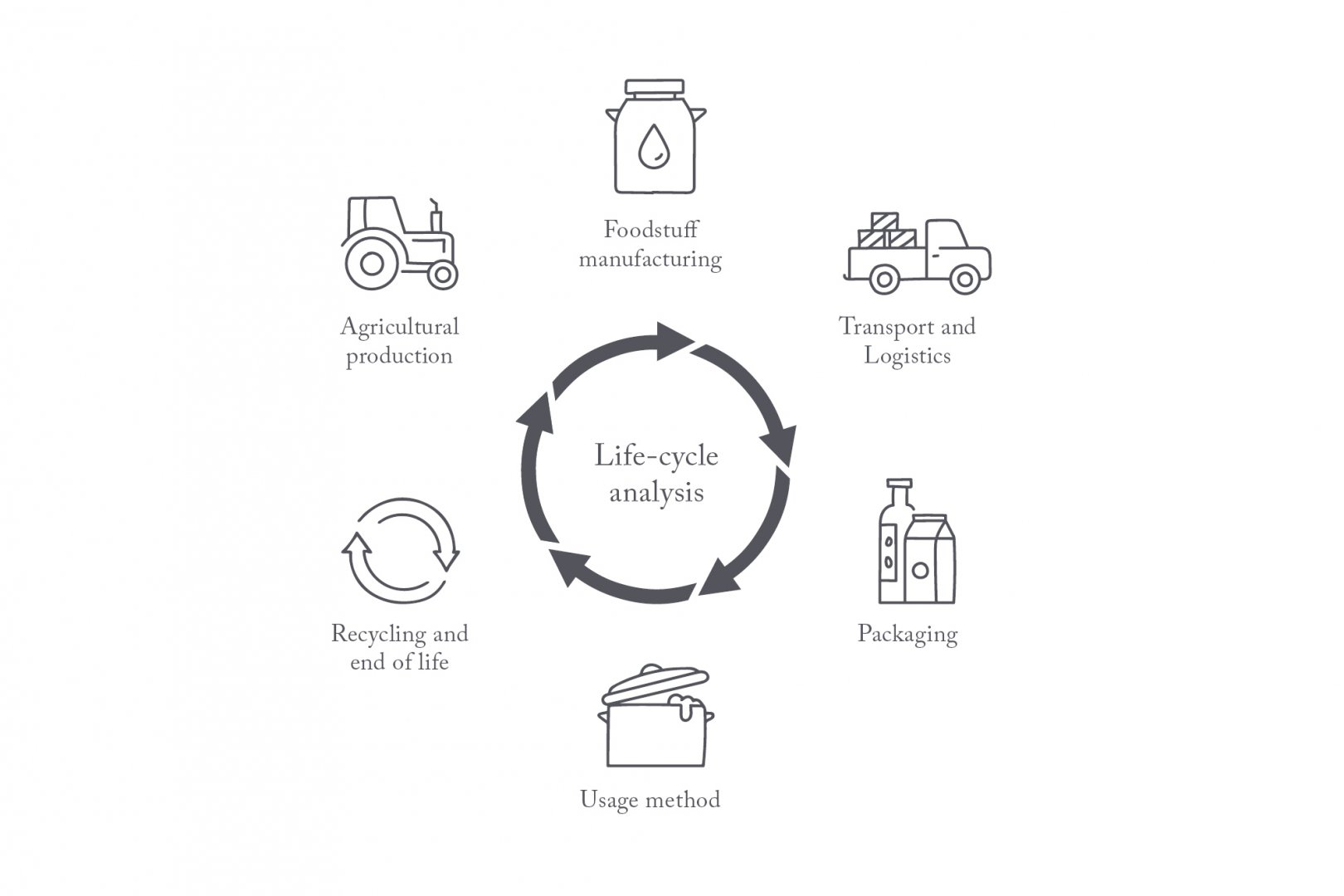
Life cycle analysis forms the basis for Planet Score
The basis for calculating Planet Score is the life cycle analysis (LCA) of the product, often called environmental assessment. This is calculated using data from the French environmental assessment database, Agribalyse. The environmental impact of a product during its entire life cycle is systematically analysed using environmental indicators. Examples of this include the type of land use, effect on the ozone layer and water consumption.
Planet Score takes additional indicators into consideration
However, in this methodology, the impact of pesticides on human health and biodiversity does not feature. Nor does the topic of animal welfare.
For that reason, calculations for Planet Score expand upon this LCA method to include additional indicators, such as the impact of pesticide use on human health and the environment as well as the impact of production on the environment, biodiversity and animal welfare. This means the environmental impacts are presented in a more extensive and concrete manner, and the work organic farmers as well as producers do to help the environment and the climate is more clearly acknowledged in the rating.
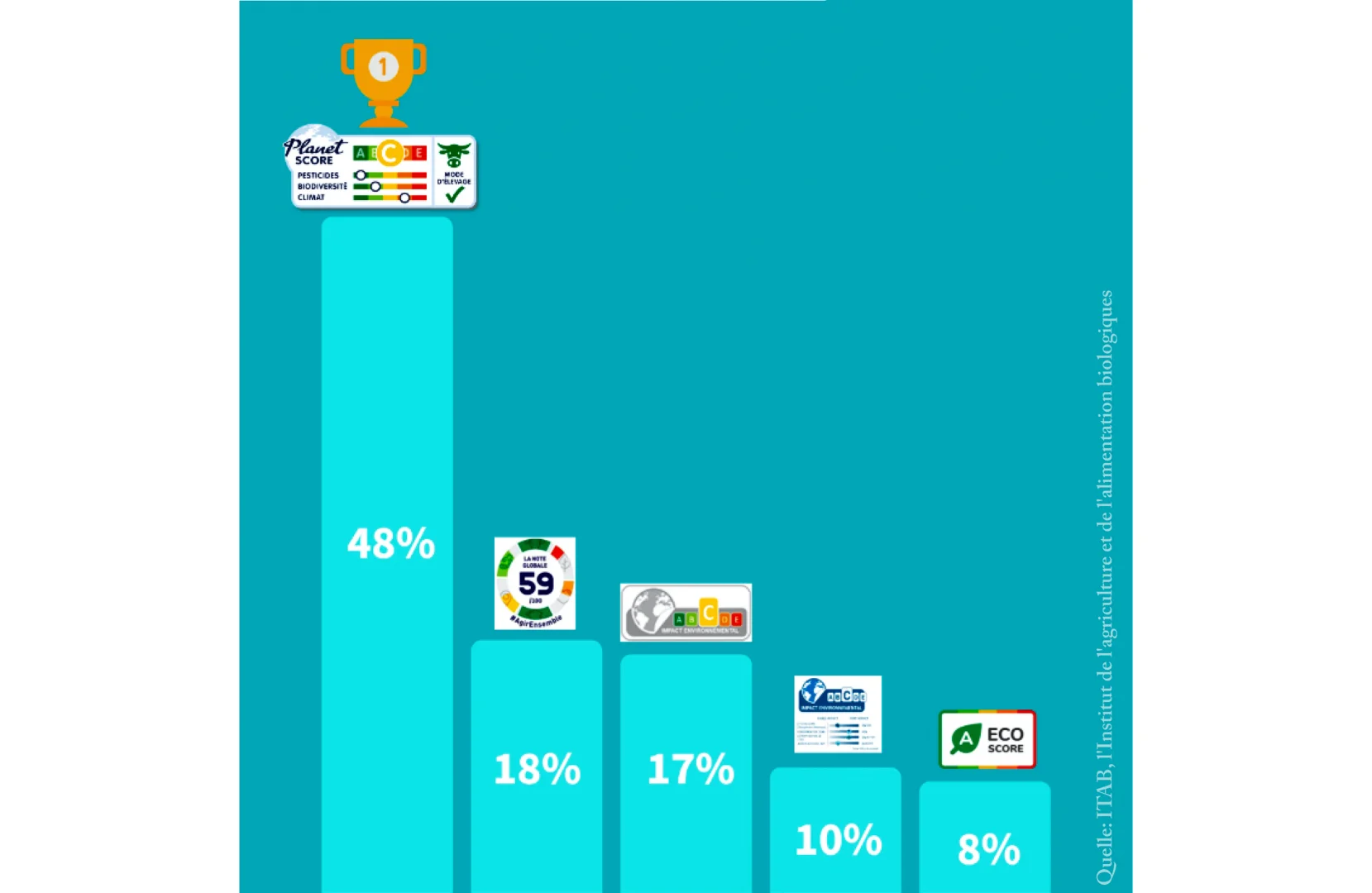
Other environmental labels
Using the LCA method alone, or other concepts for sustainability labels like Eco-Score, products which come from intensive agriculture achieve better ratings than products which are organically produced. One example: the higher the yield per hectare, the more favourable the Eco-Score. In our opinion, that is not a forward-looking strategy. We also feel, for instance, that single-letter representation provides too little explanation and is less transparent.
Consumers in France are of a similar opinion. From five choices with regard to environmental labelling, the majority would favour Planet Score, as revealed in a poll of 1000 people carried out by the ITAB. After all, according to the French institute, consumers focus on information about animal husbandry and on the use of pesticides.
More information is available at www.planet-score.org.
